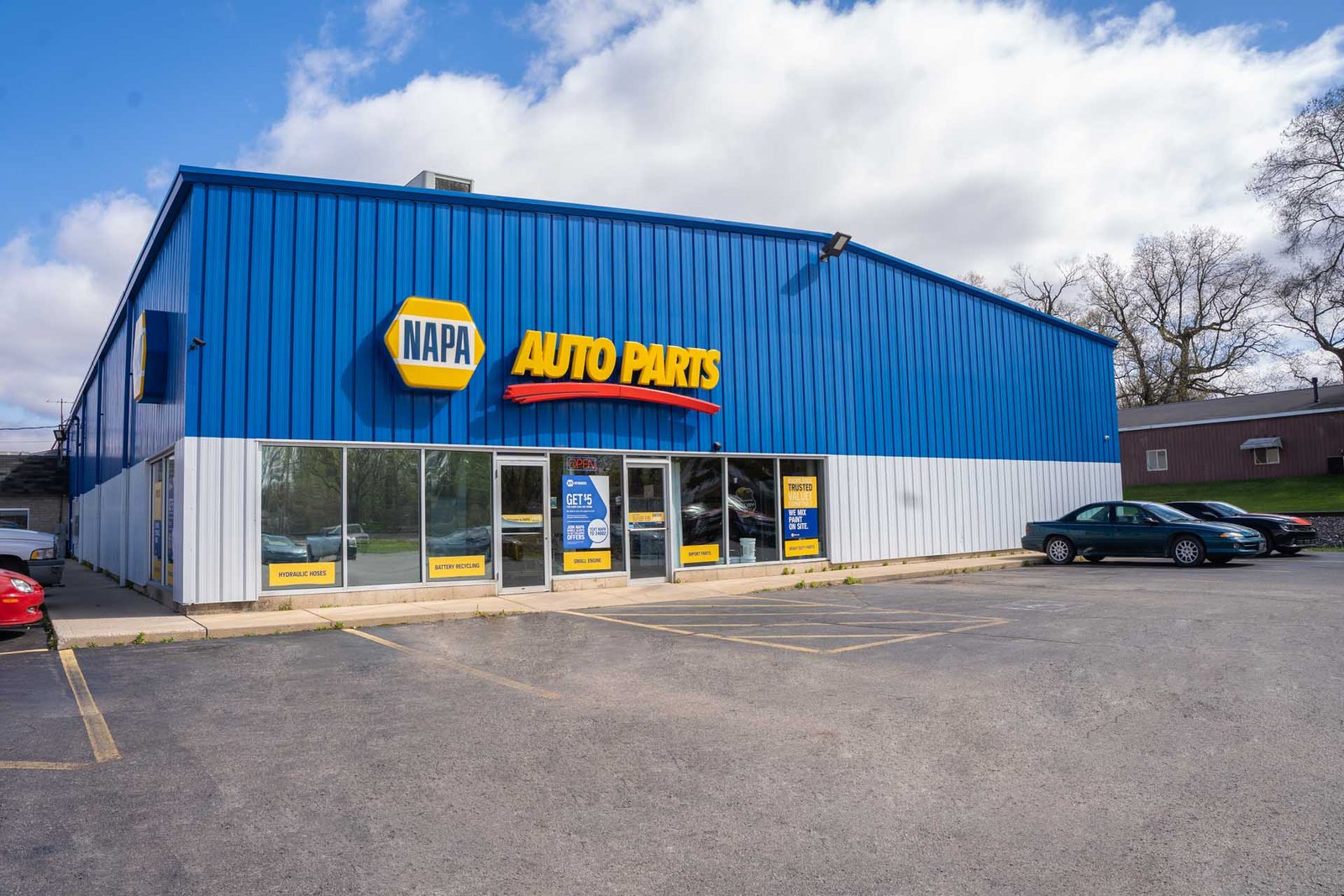overview
Locating a trustworthy auto repair shop in your area is crucial to maintaining your car’s best condition and protecting your safety while driving. Having a reliable local shop affects both the cost and quality of service, whether you’re dealing with unplanned repairs or routine maintenance. This post will discuss how to pick the best local car dealership, what services they usually provide, and how to get the most out of your trips. In order to assist you in making wise selections, we will also address some commonly asked questions.
The Importance of Selecting the Correct Auto Shop
Because your car is a complicated machine, it needs to be maintained and repaired by professionals. Selecting a shop with skilled experts, reasonable prices, and a good reputation is essential because not all vehicle repair shops offer the same level of service. Choosing a reputable car dealership can:
- Save You Money: More efficient repairs and fewer repeat trips are the results of properly detected problems.
- Ensure Vehicle Safety: The integrity of your car is maintained by high-quality repairs, which makes you and your passengers safer.
- Improve Performance: Frequent maintenance prolongs engine life, increases fuel efficiency, and makes the ride smoother.
- Decrease Stress: A reliable shop gives you peace of mind about the dependability of your vehicle and reduces the need for unforeseen repairs.
How to Locate Local Auto Repair Shops
There are various ways to start your search for a nearby car shop. Here are a few doable actions:
Use online search engines: Entering “near me” into Google or another search engine yields local results, frequently including locations, reviews, and contact details.
- Ask for Recommendations: Neighbors, friends, and relatives can frequently suggest trustworthy stores that they have previously visited.
- Check Review Platforms: Yelp, Google Reviews, and the Better Business Bureau (BBB) are just a few of the websites that offer reviews from customers about local businesses.
The majority of respectable stores have websites that list their offerings, credentials, and costs. - Social Media: A few car dealerships have a social media account where they share promotions, customer reviews, and updates.
Important Services Provided by Local Auto Shops
The majority of car dealerships provide a wide range of services, from basic upkeep to intricate repairs. The main categories are as follows:
1. Routine Maintenance – Oil Changes: The engine runs smoothly when the oil is changed on a regular basis.
Rotation, balancing, alignment, and replacements are all included in the Tire Services.
Fluid Checks: Coolant, brake fluid, and transmission fluid are among the vital fluids that technicians inspect and replenish.
Reliable starts and power are ensured by testing, charging, and replacement services for batteries.
2. Inspections and Diagnostics – Check Engine Light Diagnostics: Cutting-edge diagnostics detect problems that warning lights suggest.
Technicians examine vital systems and spot possible problems during Full Vehicle Inspections.
Emission Testing: Emission tests make sure your car satisfies environmental regulations and are necessary in many places to renew your registration.
3. Repair Services – Brake Repairs: Replacements for pads, rotors, and callipers are necessary for safety.
- Engine Repairs: This includes everything from little fixes to total engine replacements.
The transmission may need to be rebuilt or replaced as part of these intricate repairs.
In order to ensure a smooth ride, components such as tie rods, struts, and shocks should be replaced.
4. Specialized Services – Heating and Air Conditioning: Repairs to the climate control system guarantee comfortable driving.
Electrical System Repairs: Repairs for accessory power, wiring, and lights.
- Body Work and Paint: A few shops deal with paint, dent removal, and collision repair.
Characteristics to Consider in a Local Auto Shop
When evaluating car dealerships, pay attention to these important factors:
1. Training and Certifications
Choose establishments that employ technicians that have earned certifications from respectable associations like the National Institute for Automotive Service Excellence (ASE). This certification attests to the mechanics’ passing competency tests and their training in contemporary repair methods.
2. Price Transparency
Clear, up-front pricing, including estimates prior to work starting, is what a reliable shop will offer. While some businesses charge a diagnostic fee that can be waived if you want to proceed with repairs, others give free estimates. Ensure that all expenses are documented.
- Guarantees and Warranties
Reputable stores provide labor and part warranties, usually between six months and two years, to back up their work. Inquire about the shop’s warranty policy to prevent unforeseen costs in the event that a repair is unsuccessful.
4. Organization and Cleanliness
A shop that is well-organized demonstrates professionalism and pride in what they do. While messy, chaotic spaces may indicate carelessness, clean, well-organized stores are frequently associated with excellent service.
5. Customer service and communication
A quality store will explain exactly what has to be done and why. They must to be prepared to respond to your inquiries, give you progress reports, and break down fixes into easily understood language.
6. Reviews and Reputation
When evaluating the reputation of a store, internet reviews can quite helpful. Seek out recurring compliments, especially on the caliber of the job, the level of customer service, and the openness of the pricing.
Advice for Making the Most of Your Visits to Auto Shops
- Remain Current on Maintenance: To avoid more expensive repairs, adhere to the prescribed maintenance schedule for your car.
- Document Service History: Maintaining a log of repairs and maintenance enhances resale value and aids technicians in identifying potential problems.
- Ask for OEM components: Although OEM components usually more dependable and perform better than aftermarket ones, they may more expensive.
- Explain Clearly: Clearly state the problem, any odd sounds, or any modifications to the way the car performs. The technician can identify the issue more quickly thanks to this information.
- Write down an Estimate: Before work starts, get a thorough estimate to prevent unforeseen expenses.
Frequently Asked Questions About Locating Local Auto Shops
1. How can I tell if a car dealership is reliable?
A straightforward pricing strategy, good reviews, certifications (such as ASE), and a willingness to answer inquiries all things to look for. A clean, orderly store is frequently a positive indicator of professionalism.
2. Is it preferable to visit a local car shop or a dealership?
Dealerships may have specialist knowledge about particular makes, but they also frequently demand higher prices. Local stores can give excellent service for a variety of automobiles and typically have more affordable prices. Your budget and particular needs will determine this.
3. Can I take my own parts to a car dealership?
While some stores permit this, they might not offer a labor warranty in the event that the part malfunctions. To find out the shop’s stance on parts supplied by customers, always check with them first.
4. How frequently should my car inspected?
Although yearly checks advised, for precise instructions, consult your car’s handbook. More regular inspections may be beneficial for older or high usage automobiles.
5. How do I proceed if I’m not satisfied with a repair?
Express your worries to the owner or manager of the store. Many stores will assist you in fixing problems, particularly if they covered by their warranty. If it remains unresolved, think about filing a report with a consumer protection organization like the Better Business Bureau.
6. **Do OEM and aftermarket parts have the same quality?
The quality of aftermarket parts varies. While some may wear out more quickly, others on par with or better than OEM. For guidance on the best choice for your car and price range, it is advisable to speak with the technician.
Final Thoughts
It takes study to find a trustworthy car dealership in your area, but the effort worthwhile. In the long term, a reliable shop can help you save money and stress by keeping your car in top shape. You’ll ready for any maintenance or repair requirements that arise if you know what services they provide, what to look for, and how to make the most of your visit. Keep in mind that the best customer for a store is an informed one!





